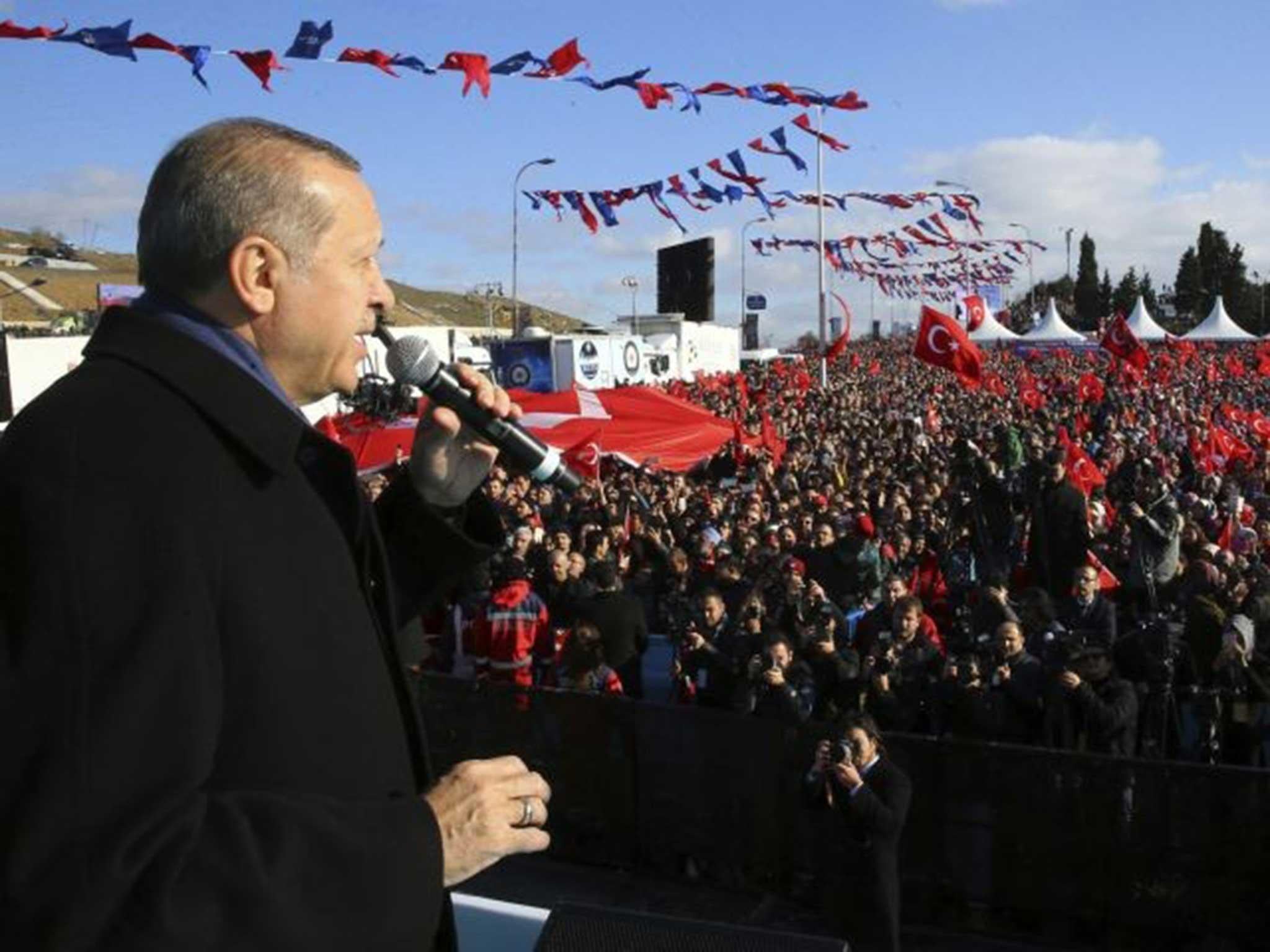President Erdogan begins campaign for constitutional reform after parliament votes in favour of referendum
Critics fear the changes will concentrate too many powers in the hands of Erdogan, who is accused of authoritarian behaviour and has already established a de-facto presidential system since coming into office in 2014

Turkey’s president has started campaigning for constitutional reforms that would greatly expand the powers of his office, hours after a vote in parliament cleared the way for a national referendum on the issue.
Speaking in Istanbul, President Recep Tayyip Erdogan hailed the assembly’s early-morning decision. “God willing, the people will give the true decision, the final decision” that he said would catapult Turkey to a stronger position.
In an all-night session that ended two weeks of acrimonious debate, the reform bill cleared the minimum threshold necessary for a final approval in a national referendum. A public vote is likely to take place by mid-April, according to ruling Justice and Development Party officials.
The decision marks a victory for Mr Erdogan, a polarising but overall popular figure, who has long advocated a strong presidency that would turn Turkey into a powerhouse.
The ruling party says a presidential system would enable the country to surmount a broad array of internal and external security threats.
Critics fear the changes will concentrate too many powers in the hands of Mr Erdogan, who is accused of authoritarian behaviour and has already established a de-facto presidential system since coming into office in 2014. They say the reforms will erode the few existing checks and balances on government.
In addition to changing the system of government, the reform bill allows the president to keep ties with his party and to restructure the nation’s highest judicial body. It increases the number of seats in the assembly to 600, lowers the minimum age for lawmakers to 18 and foresees simultaneous parliamentary and presidential elections every five years.
Kemal Kilicdaroglu, head of the opposing Republican People’s Party, condemned the outcome in a speech early this morning, saying that parliament had “handed over its own authority” and “betrayed” its history. He vowed to lead a “struggle for democracy” to get the changes rejected in the referendum.
During nearly two weeks of heated debates in the assembly on the topic, MPs traded barbs and came to blows on more than one occasion. Three legislators were hospitalised and two of them returned to parliament to vote in wheelchairs.
The parliamentary vote comes six months after a violent attempt to unseat the Turkish president failed on 15 July and ended with the masses rallying to defend him. Since then, the government has launched a massive crackdown against alleged critics.
AP
Join our commenting forum
Join thought-provoking conversations, follow other Independent readers and see their replies
Comments
Bookmark popover
Removed from bookmarks